How AgriTech innovations, GMOs, are helping Nigerian farmers grow more, cut losses
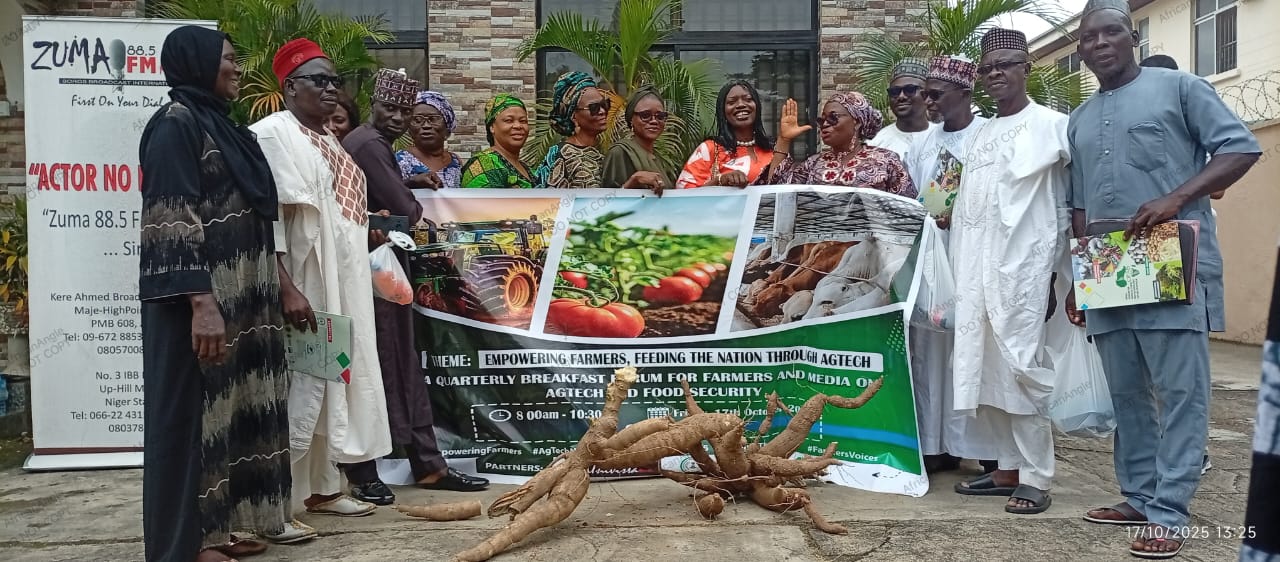
By ADEDOKUN THEOPHILUS
AgriTech innovations and genetically modified crops (GMOs) are transforming the agriculture industry with sustainable solutions to address pressing challenges such as productivity, harvest losses, and climate vulnerability. ADEDOKUN THEOPHILUS, reported how these technologies are helping farmers to grow more, reduce the cost of cultivation, increase income, and strengthen the livelihood of farmers.
Patience Koku’s first entry into farming was nothing close to easy and profitable; it began with unexpected disappointment, meagre harvests, and heavy losses.
As a first-generation farmer, Patience had stepped into the agriculture sector without prior experience. For someone who had never set foot on a farm before, nor had she ever witnessed the planting or harvesting of crops, she thought her journey would be rosy.
She had placed all her aspirations in the soil while being armed with the belief that the land would reward her hard work with abundance. On several occasions, she imagined a farm full of big maize, fresh rice, and huge cassava and the kind of harvest that would make all her hard work worthwhile and smiled at a fat bank account. In her mind, every seed she planted carried a promise of profit.
But like every beginner, life has a lesson to teach her. When the harvest came, it brought not joy but heartbreak as the weight of the losses shattered her dreams. This, she never saw coming.
“I was a business person, and I ventured into farming looking for another business, but I quickly realised that it is not the same thing, because I quickly lost all my money. These are all the money that I made in other businesses and that I invested into farming,” said Patience as she recalled agonising losses she went through.

With the losses on her neck, she looked for sustainable methods and alternative technologies to avert future disaster. “I started looking for where? What are the solutions? Why is it so difficult to make money as a farmer in Nigeria?”
But her problems were no further gone as she faced another stumbling block when the fall armyworm invaded her farm and wreaked havoc on her corns. In attempts to tackle this, both traditional and chemical solutions like pesticides, insecticides and crop rotations were introduced on her farms, but all these solutions were futile.
“When the fall armyworm started, we battled it. We sprayed everything. All my neighbours who are farmers around me, I will go and ask them and they will come to me to inquire on how we can mitigate the losses because my farm was big. How are we going to do those people will come and tell me. They even sprayed rat poison which did not work. There was nothing we didn’t do,” she lamented.
Fall armyworm is regarded as a destructive pest which has a significant negative impact on maize and other crops. It was initially detected in Nigeria in 2016, and it is dreaded as a threat to food security and farmers’ livelihood.
However, her contact with Genetically Modified crops and agricultural technologies changed the whole narrative.
Across Nigeria’s rural communities, thousands of farmers like Patience Koku are witnessing their harvests dwindle year in and year out despite heavy investment in their fields, as climate change, drought and pests take their toll and wreak havoc on their crops. But the introduction of genetically modified organisms and new agricultural technologies and bio-solutions is aiding the situation by providing a lifeline to boost yields and secure livelihoods.
Crops like maize, cotton and cowpea are prone to different agricultural challenges. Pests like armyworm significantly impact maize cultivation in Nigeria, a study by the Agriculture, Ecosystems & Environment showed.
Although maize is a key crop in Nigeria and it is essential for food security, the study explained that pest-related crop losses could range from 18% to 75% in the coming decades or even more severe than projected.
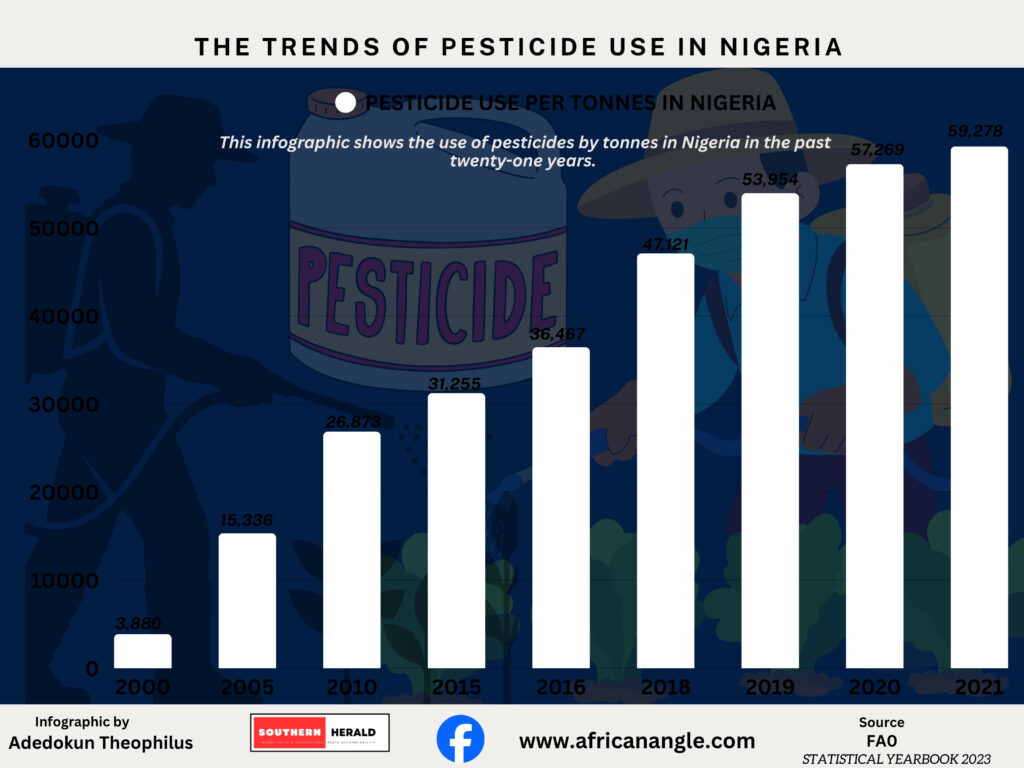
Similarly, cotton has its burdens that it gifts to farmers, and these are often accompanied by restlessness and sleepless nights. The industry is seriously threatened by illnesses and pests. The bollworm is the most significant insect category in terms of economic costs. A few other cotton pests, such as Dysdercus sp, lower the quality of the lint.
There is more.
Although Nigeria is the largest producer of cowpea in the world and also one of the highest consumers, insects and parasites can lead to up to 90% yield losses in the absence of suitable control measures. Bacteria, viruses, nematodes, and fungi are a few of the pathogens to which cowpea is prone, while Septoria, bacterial blight, and scab are some of its commonest diseases.
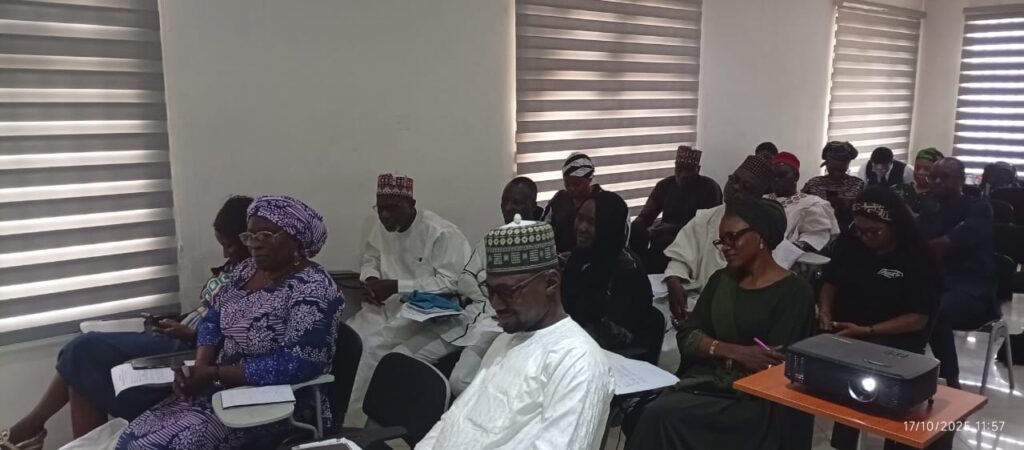
Many Nigerian states, like Abia, Adamawa, Benue, Borno, Ekiti, Imo, Kastina, Kogi, Ondo, Oyo, Osun, and Yobe states, recorded cases of these pests, said a 2020 study by the National Agricultural Research Institutes (NARIs).
Patience explained that agricultural innovations and biotechnologies have saved her and a few other farmers from incessant losses.
Smart Financial Management, Reduced Stress
Agricultural biotechnologies and genetically modified organisms are providing safety nets for many Nigerian farmers. Some farmers can cultivate and go to bed without worrying about withered plants, unpredictable rain patterns, droughts, flooding and rising temperatures, which can disrupt normal growing seasons and lower agricultural productivity, but these are for farmers who embrace GMOs and modern technologies.
These farmers are guaranteed bumpy harvests because of their significant reduction in the costs through traits like disease resistance, drought-tolerance, waterlogged resistance, and pesticide applications that would benefit farmers and consumers.
Indeed, it is a win-win situation for both agronomists and consumers.
“Many are discouraged from cultivation, and it is not only rice, because the price has fallen and the inputs that we use in doing these cultivations are too high,” said Adamu Hammed, a Kogi farmer, grieving that the drastic fall in the cost of food is wrecking and pushing many traditional farmers out of the system.
For many farmers who embrace traditional farming methods and systems, the cost of production continuously plummets with less produce to harvest and leading them to financial breakdown. This is because of the cost of pesticides and insecticides.
While 2024 saw farmers smiling all the way to the bank, this year has led them down a different road, a lone lane filled with debts, losses, and a heavy sense of despair.
“Last year, a bag of rice was sold at the rate of N55,000 or N60,000, and a single farmer will harvest not less than 150 to 200 bags. But this year, the revised is the case.”
“Up to date, a litre of pesticide remains as it but the price of products which the farmers are producing is falling. A bag of rice was bought in my place this year for 15,000 Naira. Some are even rejecting it. No market,” Hammed said.
Even the women who are extensively involved in rice milling cannot make a profit from their produce in the area.
“They will take rice to the market, and that is how they come back empty. The majority of farmers in my area have fallen into debt because what they cannot get in one quarter of what they push into farming,” he lamented.
High expenses at every stage of cultivation, especially for herbicides, pesticides, and fertilisers, have driven costs up.
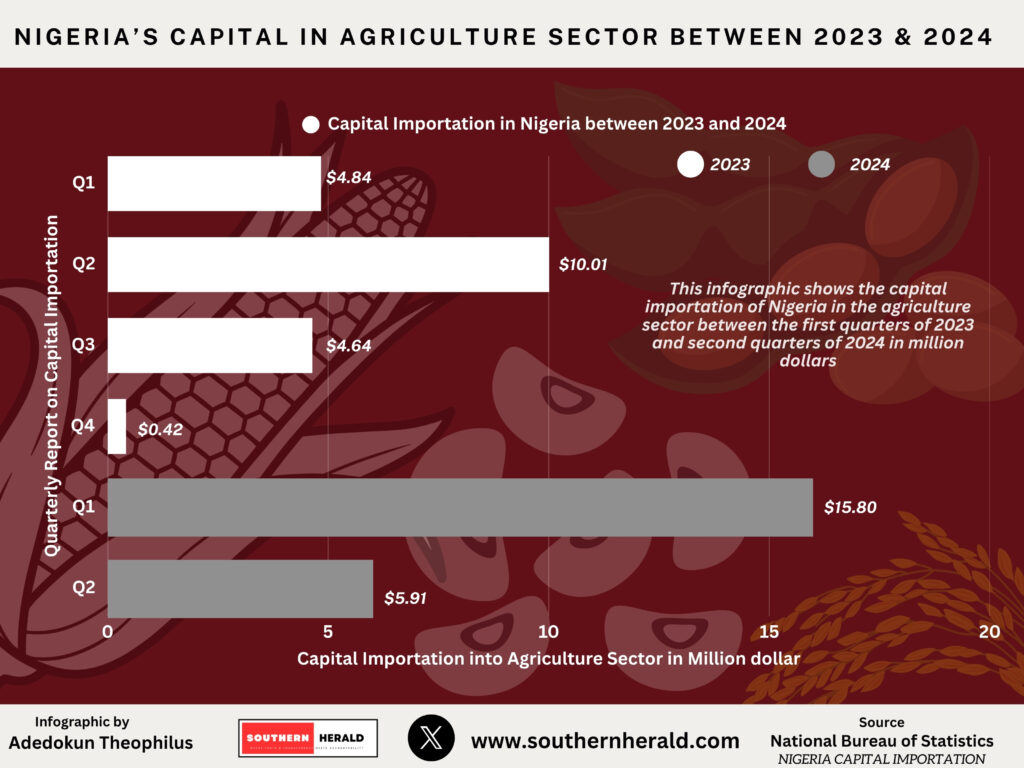
Data by the Food and Agriculture Organisation (FAO) showed that Nigeria’s use of pesticides in farming has tremendously increased over the 20 years between 2000 and 2021.
Nigeria’s use of pesticides for food production has steadily increased over the years. In 2000, it stood at 3,880 tonnes and rose to 15,336 tonnes by 2005. By 2010, usage reached 26,873 tonnes and continued climbing to 31,255 tonnes in 2015 and 36,467 tonnes in 2016. In 2018, pesticide use rose to 47,121 tonnes and slightly increased to 53,954 tonnes in 2019. Between 2020 and 2021, it further grew from 57,269 to 59,278 tonnes
Furthermore, FAO pointed out that Nigeria’s pesticide usage does not increase in isolation; the number of pesticides that are applied on each hectare of farmland also follows suit.
The data showed that Nigeria, on average, applied 0.10 kilogramme of pesticides to every hectare of farmland in Nigeria in 2000.
By 2005, the application had increased to 0.36 kilogramme on each hectare and 0.63 kilogramme by 2010. In the five years that followed, Nigeria applied 0.73 kilogramme per hectare of land and 0.85 by 2017.
By 2018, farmers were already using 1.10 kilogramme of pesticides for every hectare of farmland and 1.24 kilogramme in 2019.
It did not stop there; between 2020 and 2021, the farmers were using 1.32 and 1.36 kilogramme of chemicals for a hectare, respectively.
A global think tank on health, the World Bank Organisation, says a large amount of pesticide residues in food can lead to acute poisoning, cancer and adverse effects on reproduction. A study by the National Library of Medicine explained that pesticides can lead to cardiovascular and respiratory diseases.
While this process is financially demanding and physically draining, it is the unavoidable price many local and traditional farmers pay to struggle and compete with farmers using modern technologies and genetically modified crops.
Misinformation and misconceptions aggravate the negative perception of agricultural biotechnologies.
Nigerian farmers continue to face major challenges, including widespread conspiracy theories and inadequate government support, which result in increased costs and reduced productivity.
Experts say poor awareness is fueling opposition to GMOs and modern farming technologies. They urge the government to strengthen and intensify efforts to educate, propagate and promote the adoption of these innovations among farmers in rural and remote areas.
A study showed that many farmers are less aware of GMOs. It is mentioned that the level of education and use of credible seed sources are determinants which influence the awareness of GM crops among farmers. Aside from the two determinants, another research furthered that membership of cooperatives and farm size immensely influenced the level of adoption of improved production technologies.
“When you go through social media, there is a lot on the GMOs campaign, particularly those that are against it. Given the importance and the need to embrace it. You know, like gaining higher yields and better income. It needs to be taken very seriously by the GMO,” Muazu Ishaq, a farmer, said, explaining that pro-GMO campaigners should get involved beyond social media and mount sensitisation to the farmers in the grassroots.
Against the opposition and odds, a quiet joy spread among farmers who have introduced crops like BT cotton, Pest-resistant pod-borer resistant (PBR) cowpea (Sampea 20-T), and TELA maize, and other agricultural technologies on their farms. This is because yields show up not only on the fields, but also in the figures of their bank statements.
Months of hard work pay off with ease for most of them. That is not all, they invest less in the use of pesticides and have better storage quality.
Experts said that genetically modified organisms and agricultural technologies are the new oil of modern agriculture. They expected that these inventions and innovations would save farmers from stress and poor harvests.
Although Patience Koku had long embraced biotechnology on her farm, her recent collaboration in a Niger State government project further strengthened her conviction in the potential of genetically modified (GM) crops.
As part of the project, Tela maize was planted on 300 hectares of land from a 3000-hectare plantation in Mokwa. But then disaster struck, and for 41 long days, not a single drop of rain touched the soil. Engrossed in fear, she gave up hope that the farm would be a loss.
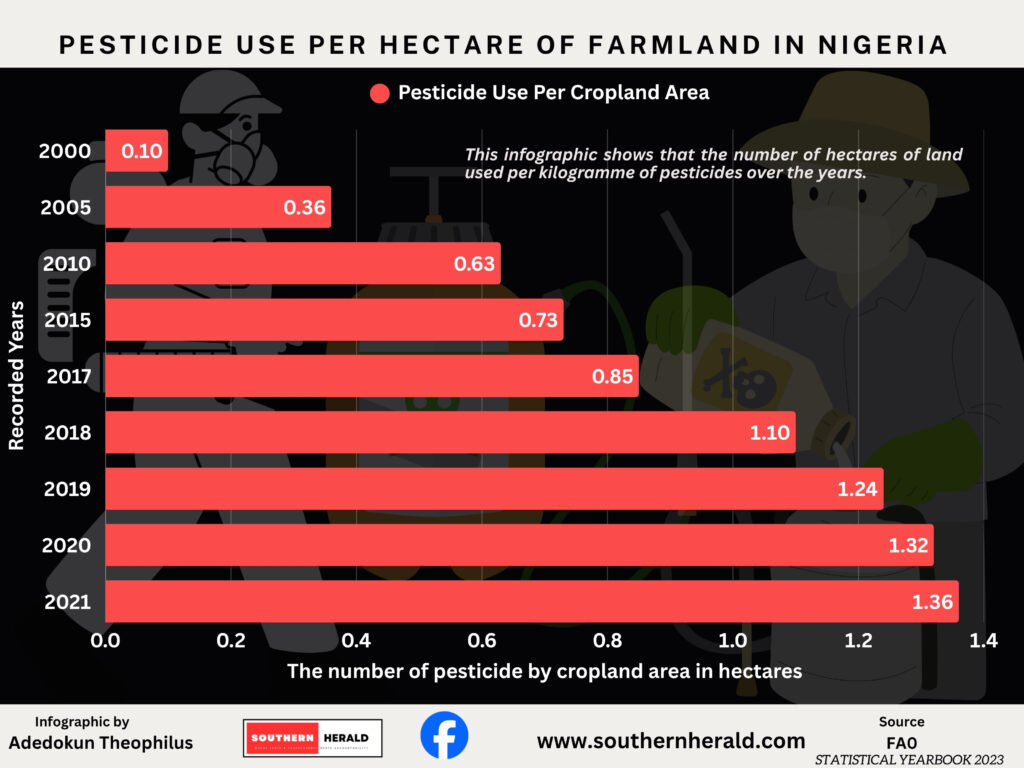
But the day she visited the farm, everything changed. The sight before her rekindled her hope while other crops stood stunted and withered, the Tela maize thrived tall and green as if it had been constantly watered and cared for.
“We planted about 300 hectares of Tela, but the rest we did Samas. We mixed everything there,” she recalled. “I am telling you, it did not rain for 41 days after we planted, 41 whole days, no rain. Then the rain came back, but only lightly. It drizzled just enough to wet the ground, not even enough to fill a bottle in a day. Then again, for about 12 days, no rain.”
Those long, dry days made her worry as her spirit was downcast, “You cannot imagine what I was going through. I thought I had lost everything, I even lost weight,” she recounted.
Yet, to her astonishment, when she finally returned to inspect the fields, the Tela maize revived her hope. “We drove straight to the Tela farm,” she said with a smile.
“The Tela cobs were bigger than this one; it is strong and growing healthily.,” she gestured using her two hands as she created a vacuum between them.
“You know the army worm, too, is not eating it. So, as we are spraying the other farms. Armyworms will not eat it, and then its drought tolerance. Now look at climate change,” she explained.
But the surprises did not stop there.
A similar experience that she had in the cultivation of PBR cowpea revealed that GMO and agricultural technologies are the next cash cow due to their lower demand for pesticides, chemical use and safely edible for human consumption and the environment.
When Importation Bites, Local farmers struggle to survive in a Global Market
Aside from the non-adoption of biotechnologies and genetically modified crops by farmers, they are facing more competition from massive imports.
Farmers said importation is pushing them off the market.
“The government needs to come up in a very serious manner, in support of farmers, most especially,as it has been agreed upon that farmers are facing difficult times.” said Muazu Ishaq, a rice farmer.
Noting that the drastic reduction in the price of food like a bag of rice costing N15,000 as compared to last year’s price is affected by importation of rice; Ishaq lamented that many are not getting the returns and investment input into farms.
“We are not against importation and people getting food at cheap prices, but I think local farmers should be encouraged because it is a difficult time,” he said.
“So all that we put into production is gone, and there is no likelihood that a quarter of it is going to come at all,” he lamented, adding that the government is not taking cognizance of local farmers.
They noted that many crops imported to Nigeria are GMOs. “All the corn, soya bean meal that they use for the chicken feed companies in Nigeria are imported. Our soya bean production is very low, it does not support so they import the meal and they are all bringing GM, soya beans,” said Patience.
They explained that South America, US and Brazil are the major players in the import of GM Soya to Nigeria.
Nigeria spends over $10 billion annually on the importation of agricultural produce, according to the federal government. With 85 million hectares of arable land and a youth population of more than 70% under 30, Nigeria nevertheless generates more than $400 million from agro-exports, said Abubakar Kyari, the country’s minister of agriculture and food security.
Data from the UN Comtrade showed that Nigeria imported 109,198,635.4 kilogrammes of maize between 2015 and 2024. This is about 109,198.64 tonnes of maize and 3,639.95 trailers of 22-wheeler trailers.
Most maize was imported from Niger Republic, with a record of 107,304,440 kilogrammes (107,304.44 tonnes) within the same period.
Further analysis showed that 13,806,963.53 kilogrammes of rice were imported, and Ghana, Canada, Benin, Niger, the United States of America, the Central African Republic, the United Kingdom, Cameroon, and Namibia are the biggest importers.
That is 13,806.96353 tonnes of rice, which is about 460 trailers.
Meanwhile, the National Bureau of Statistics reported that Nigeria’s capital importation into the agriculture sector is $4.84 million in the first quarter and $10.01 million in the second quarter of 2023. NBS recorded $4.64 million and $0.42 million in the third and fourth quarters of the same year. $15.80 million and $5.91 million were recorded in the first and second quarters of 2024.
From Seeds to Sustainability: AgriTech, Genetic Innovation Can Transform Nigerian Agriculture
Innovative technologies in agriculture are aimed at ensuring Nigeria’s food security and sustainable development. Crops such as rice, maize, cotton, and cassava are key to Africa’s giant food sovereignty. These foods are indispensable to curb malnutrition, hunger and reduce reliance on imports.
Experts have called for increased investment in agricultural biotechnology and innovative technologies to boost Nigeria’s food security, reduce import dependence, and empower local farmers.]

Nigeria’s progress toward food security depends on adopting modern farming technologies, including genetically modified (GMO) crops and genome editing innovations, said agricultural stakeholders.
Many crops are important to Nigeria’s food and economic security but these crops suffer from low yields, pest infestations, and little resistance to climate stress, said the National Biotechnology Development Agency (NABDA).
The director of Agricultural Biotechnology Department, Rose Gidado said many local farmers suffered low output despite the huge investment they make on farms. “We are always calling for the use of innovative technologies to improve our seeds because most of our seeds are not in production, and that is why the farmers always end up with a very low yield in Nigeria,” Gidado said.
“Maybe one one ton or 1.5 tonnes. So we are always running a deficit, and we make up the deficit with importation, and we use a lot of money to import, which is not good for us.”

Genetic modification (GM) and genome editing sustainable solutions are the modern biotechnologies aiding farmers to make crops resistant to pests, tolerant to drought and enriched in vital micronutrients like Vitamin A, iron and zinc to tackle malnutrition.
According to her, these technologies not only improve yields but also reduce production costs and protect biodiversity by minimizing pesticide use.
“Cotton is a miracle crop, and is a very key crop for the textile industry in Nigeria, providing raw materials and employment opportunities. Around the 70s and 80s, when the textile industry was actually the second employer of labour in the country before the emergence of this climate change issues at home, and cotton cultivation became a mess because the farmer has to spray like 10-12, times before he will have access to yield, and the yields are usually not very high, so and even the breeders run away from breeding cotton,” she explained.
She emphasised that investment in agricultural research and development, stronger public-private collaboration, and improved digital literacy among farmers to ensure that technological advancements are accessible.


